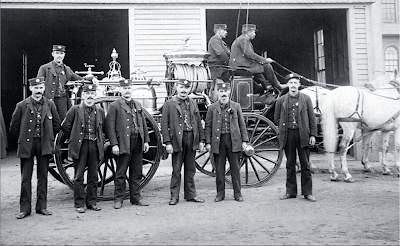Most NFL Team Owners Are Right-wing Conservatives So It Figures That The Super Bowl Is Socialist
OK. It’s the Patriots vs. the Giants. Between now and Feb. 5th a zillion words will be written about who will win the Super Bowl and why and how and by what point spread. With permission of all you sports fans out there I’d like to offer a few hundred words to raise another question about this upcoming football contest.
Is the Super Bowl a socialist enterprise? Yes the language is provocative but not, I believe, inappropriate. After all Indiana, the site of the next Super Bowl, is currently governed by those who insist government should play a minimal role, and the word they and their Republican counterparts around the country use in this election year to describe those who disagree is socialist.
I submit that the Super Bowl in Indianapolis is socialist from head to toe.
Start with the venue. Governments paid for over 80 percent of the new $750 million Lucas Oil Stadium. The Colts chipped in about 15 percent, an investment they probably recouped in inflated asset value the day the stadium opened. Governments are also covering the estimated $20 million a year in operating deficits.
But this is only the tip of the iceberg. The NFL itself is a government creation.
Back in 1961 Commissioner Pete Rozelle convinced Congress to grant anti-trust immunity to the NFL to allow it to negotiate with broad companies as a single entity. Its first contract with CBS proved so lucrative that each team had $332,000 in the bank at the beginning of the season, a sum that exceeded most team payrolls at the time. Flush with cash, team owners might have started a bidding war for players if a truly free market in labor prevailed.
But having eliminated a free market externally in the broadcast marketplace, this new government sanctioned monopoly proceeded eliminated a free market internally ion the labor marketplace. The NFL imposed a rule allowing any team losing a free agent to another team to receive something of equal value from that team. Few teams were willing to risk signing a high profile free agent only to see their own rosters depleted.
Free agency came about only in 1993 after a jury ruled in favor of the players in a restraint of trade lawsuit brought by a group of players. That verdict and the threat of a class action filed by Reggie White of the Philadelphia Eagles on behalf of all NFL players led the league to the bargaining table. Yet the owners still refused to allow a completely free market by demanding and receiving a salary cap.
Back in 1961, to gain the support of all the owners, the NFL decided to distribute the revenue equally to all teams. Nothing more socialist than that. But this created a problem. The Green Bay Packers were (and are) a non-profit team whose community ownership structure prevented it from blackmailing cities into giving it huge taxpayer subsidies by threatening to leave. Equal revenue sharing could result in other communities opting for the Green Bay model. The NFL quickly closed that door by amending its constitution. Article V, Section 4, often called the “Green Bay Rule,” declares “charitable organizations and/or corporations not organized for profit and not now a member of the league may not hold membership in the National Football League.”
Some might justify the huge subsidies to football stadiums because of their purported equally huge positive local economic impact. The evidence does not support that argument. Numerous researchers have examined the question and in virtually every case found no statistically significant positive correlation between sport facility construction and economic development. As for the Super Bowl itself, a study of six Super Bowls from 1979 to 1998 by economist Phil Porter found no increase in taxable sales in the host community compared to previous years without the game. Economists Robert Baade and Victor Matheson found that hosting the Super Bowl was associated with an increase in employment in host cities of a paltry 537 jobs.
Not that any of this matters a whit to a true blue football fan. I myself look forward to sitting back and enjoying a hard fought game.
But this is an election year. A year in which the role of government will be vigorously debated. The Super Bowl is a reflection of governments aggressively intervening, not on behalf of the poor or the consumer or the worker but on behalf of the 1/10th of 1%. Eighteen of the 32 NFL teams are owned by billionaires. Perhaps during the interminable commercials we might pause a moment and reflect on the fact that we are watching a truly socialist spectacle.
The NFL is operated much like America's biggest corporations, the profits are private enterprise, but the public has to pay for any losses. Why are at least a third of Americans so in love with the fake patriotism movement known as conservatism and the conservative view of what capitalism should look like..
























